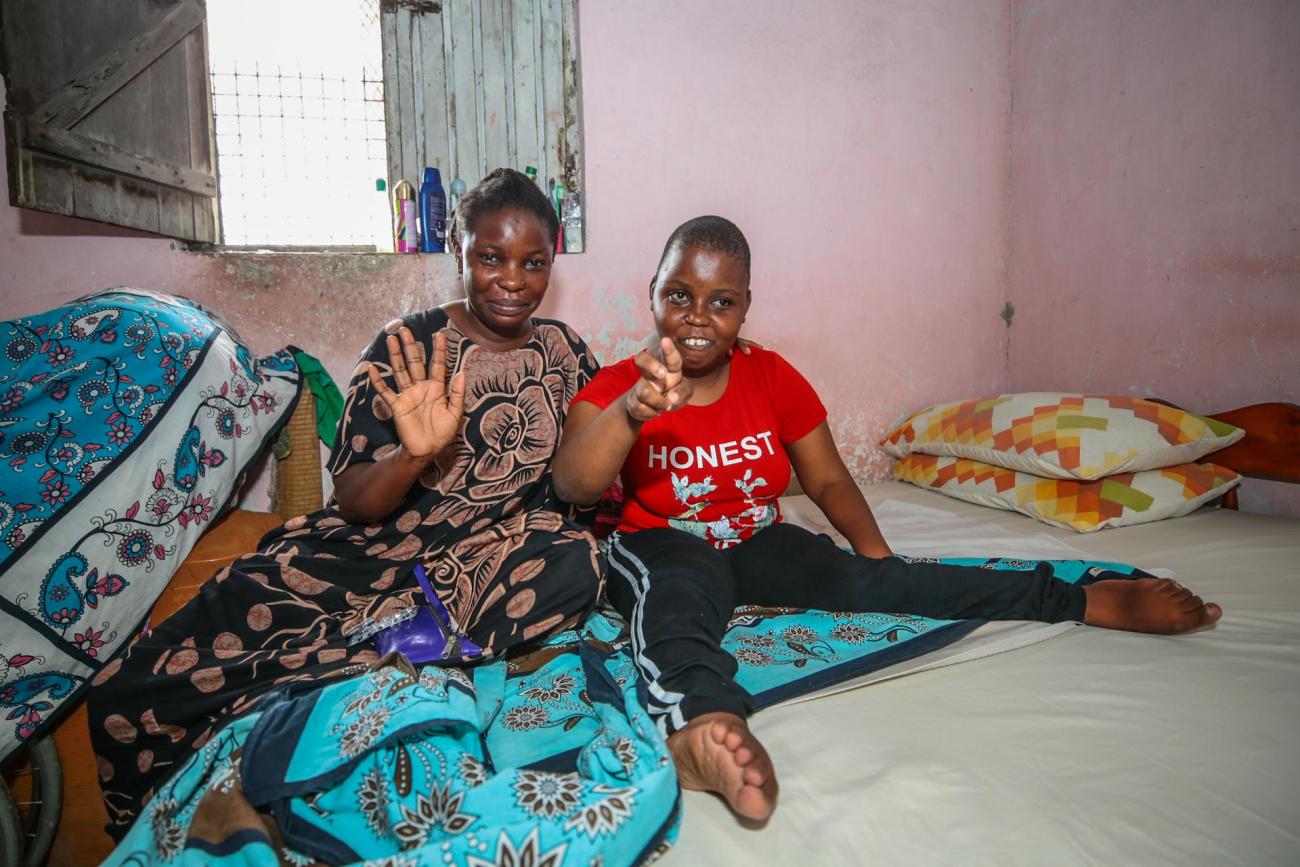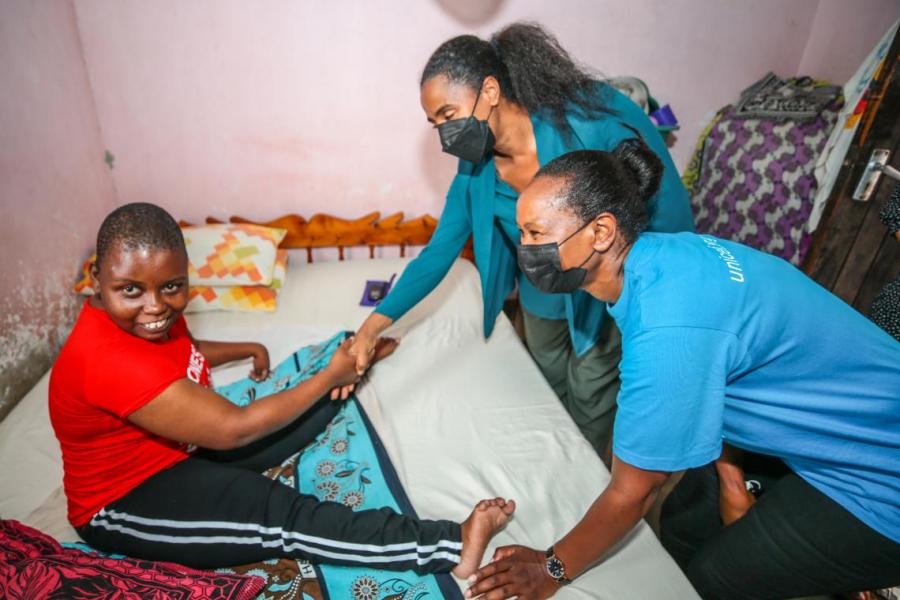Integrated cash transfers promoting inclusion of children with disabilities in Mombasa

Integrated cash transfers promoting inclusion of children with disabilities in Mombasa
Mariam’s wheelchair is folded away in a corner. Because the roads where she lives in an informal settlement near Mombasa, Kenya, are narrow and sandy, the chair is no use.
Instead, Mariam’s mother helps the teenager, who was born with hydrocephalus and epilepsy, get around when needed.
To improve Mariam’s well-being, the 16-year-old’s household has been targeted by a UNICEF programme that provides unconditional cash transfers to support children with disabilities.
With the money provided by UNICEF, Mariam’s mother, Amina, bought medication, paid rent, bought food and even started a small business of selling chapatis, a staple part of Kenyan meals.
“I am worried what might happen to my daughter if I leave her alone. The cash transfers made it possible for me to start a small business right outside of our house. I can make an income to buy medicines and other essentials for Mariam, while keeping an eye on her.”
With financial support from the Norwegian Agency for Development Cooperation (NORAD) and the Swedish Agency for International Development (SIDA), UNICEF has registered 3,169 children with disabilities in Mombasa Country under the programme.
Between November 2021 and February 2022, UNICEF transferred KES 12,000 per household over four instalments. These unconditional cash transfers reached 2,700 households.
As part of the COVID-19 response, 723 households also received cash top-ups through a vertical expansion of existing government cash transfer schemes where household members had severe disabilities.
With the cash, parents not only pay for their children’s education, but also access medicines and cover basic needs such as nutritional foods. Many have also used part of the money to start small businesses.

UNICEF is now advocating to boost funding for the programme, allowing Mombasa County to expand the programme to reach more households and increase the benefits to families with higher support needs.
UNICEF is also working with the county government to conduct educational assessments to make sure disabled children receive the support they require in school, including assistive devices and accessible handwashing and sanitation facilities.
At the same time, UNICEF has worked with the county government to ensure sustainability by including programmes for children with disabilities in the county’s Integrated Development Plan.
However, in Mombasa County poor infrastructure, and poor access to transportation, medication, community-based rehabilitation, as well as caregiver support, remain a challenge.
Transportation to and from school, quality inclusive education in a school with accessible infrastructure, equipment, adapted teaching and learning materials, and capacitated teachers, and integrated school services with physiotherapists and speech therapists would support children like Mariam to reach their full potential.
UNICEF is committed to continue the collaboration with the county government to address these challenges through strengthening coordination capacity of government agencies and partners for better planning, resource allocation and efficient budget execution and monitoring of progress in upholding the rights of children with disabilities.
Kenyan children with disabilities have been disproportionately impacted by events of recent years including the COVID-19 pandemic, a protracted drought emergency and high cost of living.
In Mombasa County, with a population of about 1.2 million people, about 19 per cent of children are considered multi-dimensionally poor, meaning they are deprived of at least three basic services including social protection, education and basic services.
This story was first posted on UNICEF Kenya.







